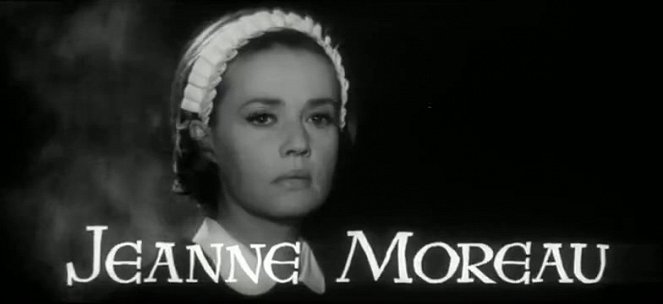Director:
Luis BuñuelCámara:
Roger FellousReparto:
Jeanne Moreau, Georges Géret, Michel Piccoli, Jean-Claude Carrière, Françoise Bertin, Jean Ozenne, Dominique Zardi, Pierre Collet, Bernard Musson (más)Streaming (1)
Sinopsis(1)
Célestine, una criada parisina que ya ha cumplido los 32 años entra al servicio de una familia noble en una pequeña población de la Normandía. Célestine conoce su oficio, pero también es consciente de que su trabajo es una forma de esclavitud y que “por infames que sean los canallas, nunca lo son tanto como la gente que sólo es honesta en apariencia”. Su señora es altiva, beata, tacaña y obsesionada con la limpieza. El señor la acosa sexualmente. El patriarca Rabour la hace caminar con unos botines que atesora celosamente en un armario. Pero el resto de empleados-esclavos tampoco son una compañía ideal, especialmente Joseph, el cochero con tendencias sádicas, racista y activista de extrema derecha con quien Célestine accede a iniciar una relación y así poder conseguir la confesión de que él ha sido el violador y asesino de la pequeña Claire. (Divisa Home Video)
(más)Reseñas (4)
A self-confident young woman arrives at an estate filled with fetishised objects in order to voluntarily become such an object herself. She uses her legs in particular to disrupt the established order and unsettle several men, whose belief in their own dominance slowly weakens. With cynical pragmatism, she transforms the space belonging to men and their sexual fantasies, which she easily infiltrated thanks to her innocent appearance and (semantically rich) maid costume. This rearranging of power relations is elegantly filmed in black and white in somewhat theatrical frontal shots, by means of which the director maintains the necessary distance from the characters. He doesn’t put himself in their shoes, but rather observes them with the detachment of an entomologist. With greater interest “for us”, basically only Celestine’s legs are provocatively filmed (and were purportedly the reason that Jeanne Moreau was cast in the role). Were it not for those legs, the hunting scenes and a few shots of fauna, you might wonder whether this is actually a Buñuel film. Its traditional theme, division of power between men and women, (un)controlled sexuality, chauvinism and tearing away of social masks are of course dealt with in the film, but they are hidden deeper below the unusually restrained surface. Similarly as the inhuman hell of the Second World War long remained hidden under a civilised veneer. 75%
()
This time around, my favorite Spaniard spared us the surrealistic scenes and focused on a realistic depiction of the French countryside of the 1930s with increasing tension, antisemitism, and a creeping authoritarianism. The world of a patriarchal society with distorted interpersonal relationships is seen through the eyes of a city servant who navigates between emotions and the physical needs of several men from different social classes. However, even seemingly banal life in a rural estate can bring risks, and at least one of the local residents hides a dark secret. Buñuel once again proves that he and I are tuned to the same wavelength and almost every film of his evokes a sense of kinship and joy in me. Overall impression: 90%.
()
Not Buñuel's best, yet Michel Piccoli is in his place and Mirbeau's book gives a hint of themes to come. However, I have decided to compare it with other adaptations in the future. At the very least, replacing Moreau with Léa Seydoux is more than acceptable. I also suffer from the decision to move the plot to the 1930s (which is hard to believe in because the sets utterly fail) because it doesn't make much sense. Perhaps the only reason is that the director chose this period because he remembered it and it was closer to him.
()
Luis Buñuel cast the beautiful Jeanne Moreau in the lead role of Diary of a Chambermaid where she showcased her brilliance as an actress and delivered this quite powerful story in a truly captivating manner. Yet she is not the main asset; the direction and cinematography also play significant roles, but thanks to her, you truly get to see what life at an aristocratic countryside estate can be.
()

